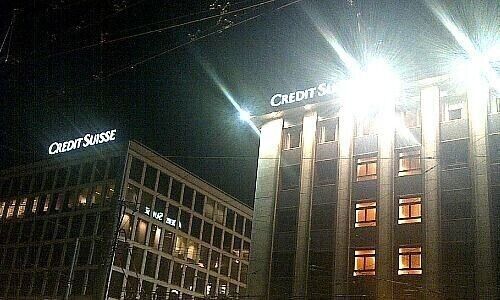The publishing of stolen Credit Suisse bank data by a journalist network raises questions – not only about the broad nature of the attack.
According to media reports from «Suisse Secrets», Credit Suisse provided bank services to criminals and corrupt individuals for decades even though they should have known the gains were illicit or undeclared.
More Feeling than Control
As evidenced by past reporting, that might have once been true, but it is now well acknowledged. There was a time when due diligence did have significant gaps when it was more a question of feeling and opportunity than any form of real control. Things have changed since then and this is not being recognized in the reporting.
There has also been a discussion as to who can have a bank account or not. In the leaks, many account holders were named and they only have one thing in common. They are not Swiss. The King of Jordan has nothing to do with Rodoljub Radulovic other than both are held as examples of Credit Suisse's unmoral business practices.
Analogous to SNB
But Radulovic is a convicted criminal. He does not have the right to have an account in Switzerland. King Abdullah, in contrast, is the official head of a country that has a good relationship with Switzerland and on who provides stability in a troubled region of the world. The articles do not mention why he should not have an account in Switzerland.
It is analogous to the Swiss National Bank (SNB) being asked by the Green Party to tighten its investment criteria. Until now, the SNB has been unable to buy shares in companies that adhere to particularly damaging environmental practices or in weapons manufacturers. But they still demand that the requirements should be far stricter for political and moral reasons.
Legal or Moral
The question of morality and legality is being raised - both for bank accounts and SNB investments. A bank cannot undertake certain kinds of business by law, which themselves are stricter today than they used to be. If Credit Suisse has not exited these relationships, it will have to confront the Swiss Financial Market Supervisory Authority (Finma), something that has happened in the recent past.
Moral questions come into play when a bank holds a relationship with clients that are not criminal, sanctioned or otherwise black-listed. While most people would not characterize the King of Jordan as some kind of rogue, it seems he is for some.
Fair and Open
Even the theft of data seems to be underpinned by moral and ethical rationalization. Some write that banking secrecy aids corruption while others say it takes away tax revenues from poor countries.
There is no mention anywhere that banking secrecy has useful elements and that the fundamental character of it has changed in the meantime. It should also be said that Swiss democracy is very open, in contrast to that of many other countries, to almost any kind of political and/or moral proposal. Some are then approved and some are not. The question of morality is both very malleable and subjective.
Nothing has been said in the recent reporting that Credit Suisse has been penalized. It has ended its relationships with criminals - from what is known. But it remains to be seen what will be left of the accusations, if anything, after this first wave dies down.



































